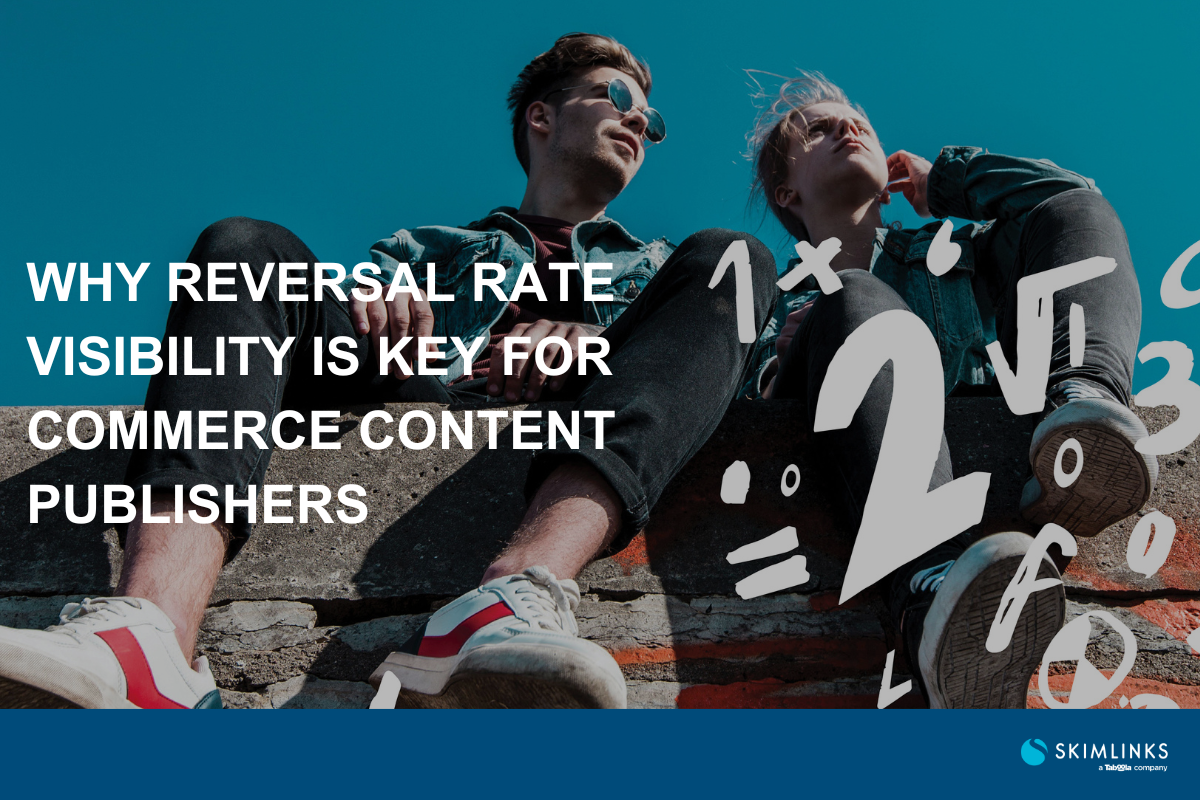Skimlinks is adding Reversal Rate visibility for commerce content publishers. Here’s why the metric matters
Posted 6 months ago by Zach Crizer

Even with strong recommendations, not every purchase works out. Returns are a fact of life, and the e-commerce world is facing the challenge of returns alongside brick-and-mortar stores. Returns have a real impact on the bottom line for retailers and, as a result, publishers in the commerce content space.
Over $260 billion in US e-commerce sales will be reversed in 2024, per EMarketer, as part of what the National Retail Federation calls “a necessary part of retail” to build trust with customers. Over £7 billion worth of orders are reversed in the UK each year, per reports, including more than 40% of clothes purchased online. Still, returns and shifting merchant policies around them can create uncertainty for publishers who lack visibility into the process that now affects an estimated 17% of online sales.
That’s why Skimlinks is providing more transparency with Reversal Rate, a new KPI to add to the optimization toolbox. Broken down by merchant, the metric joins EPC, conversion rate and average order value in the Publisher Hub, Editor Toolbar and Merchant API. Easy access to these key indicators can help publishers make informed choices about their merchant mix and ultimately better understand their revenue stream.
Here’s what you should know to incorporate Reversal Rate into smart decision-making.
What Reversal Rate measures
Reversal Rate tracks the percentage of commissions previously deemed revenue that aren’t paid out. Canceled commissions, also known as reversals, most commonly stem from returned orders and vary significantly by vertical.
Why Reversal Rate matters
Reversal Rate is an important KPI for publishers to consider when deciding which merchants to feature in commerce content. Like earnings per click, conversion rate and average order value, it factors into the equation of revenue.
By providing convenient access to information and context about merchants’ Reversal Rates, Skimlinks can help publishers craft better strategies and ultimately earn more commissions. The metric’s availability across Skimlinks’ tools — from the Publisher Hub to the Editor Toolbar — will offer solid, up-to-date information to consider as publishers optimize their commerce content in real time.

That will immediately be useful for publishers aiming to create better revenue projections and make data-driven decisions to maximize their commissions. Reversal Rate will also be a significant factor in the industry’s evolution as merchants work to combat escalating returns and the logistical challenges associated with them.
In the fashion space, for instance, e-commerce retailers must navigate shoppers’ desire to try clothing in multiple sizes (known as bracketing) or without commitment, yet maintain strict enough policies to avoid exorbitant shipping and restocking costs. Publishers will have incentive to monitor which merchants strike the best balance between tamping down reversal rates and sustaining strong consumer demand evident in other key metrics such as EPC and conversion rate.
How publishers should understand Reversal Rate
It’s important to remember that Reversal Rate is not one neat trick to choose merchants. It’s one signal out of many that publishers should use to assess the best options for inclusion in their commerce content.
Reversal Rate data clearly shows variance driven by return policies and primary verticals. With Skimlinks’ unparalleled window into the commerce content world, publishers will have not just a number, but the context to consider optimal strategies in every lane.
Take hotel booking merchants. They have elevated Reversal Rates as a matter of course, but that doesn’t mean publishers should stop recommending lucrative trips to motivated readers. Just the opposite, access to Reversal Rate numbers can bolster publishers’ confidence in travel-focused commerce content by cutting down on the uncertainty inherent in planning for commissions that could be months away.
In the Publisher Hub or in the Editor Toolbar, consider Reversal Rate one useful new barometer in a full dashboard of tools. Using it in tandem with other metrics to monitor and improve performance, publishers can leverage Skimlinks’ data to avoid headwinds, to fly higher and higher.
TOOL TIP: Skimlinks calculates Reversal Rate using network data for transactions over the past 90 days, then displays the average rate for each merchant. Because the metric uses a rolling window, it can change daily, but each merchant’s number is likely to remain relatively stable.

